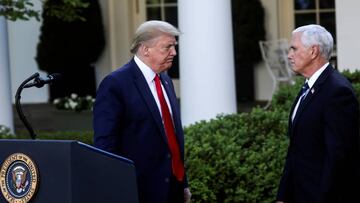Second stimulus check vote: can Republicans reject the $2,000 Democratic proposal?
A CARES 2 Act has been drawn up, which would see millions of Americans receive a second stimulus check but the White House wants to hold off before discussing it.

House Democrats are keen to introduce a new relief package that would see millions of Americans receive another stimulus check worth $2,000 from the government. The relief package — CARES 2 — could be brought to the floor as early as next week but Republicans want to reduce public spending and so have no interest in discussing the bill yet.
According to Axios, Democrats have put together a $1.2 trillion relief package and with input from the White House. There is, however, still money outstanding from the first CARES Act — worth $2.2 trillion — and White House officials want to see how re-opening the economy goes first before they pass another stimulus package.
Leaders within the White House want to assess the guidelines of how the first stimulus package was used so as to ensure that people weren't getting various different aid for a variety of reasons, a source told Axios in the same report mentioned above.
The first stimulus check was sent out in April and there was talk of another stimulus check being sent out in May. "We could very well do a second round of direct payments," President Donald Trump said while answering press questions earlier this month. "It is absolutely under serious consideration."
"Americans interact with the IRS more than any other federal agency. It's critical that the agency not be perceived as partisan and working on behalf of the president's reelection campaign," Senate Finance Committee ranking member Ron Wyden(D-Ore.) said Friday in a statement to The Hill. "Putting the president's name on economic impact payment checks and his signature on direct deposit notification letters undermines that nonpartisan reputation."
The details of second stimulus package (subject to change) include:
Roughly $1 trillion for state and local governments. They want to split this money into separate revenue streams to ensure each community can access it.
More money for hospitals and COVID-19 testing.
Roughly $25 billion to keep the U.S. Postal Service afloat.
Related stories
Expanded nutritional benefits, Medicaid funding and unemployment insurance (which they call “paycheck guarantee”).
Another round of direct payments to Americans.

